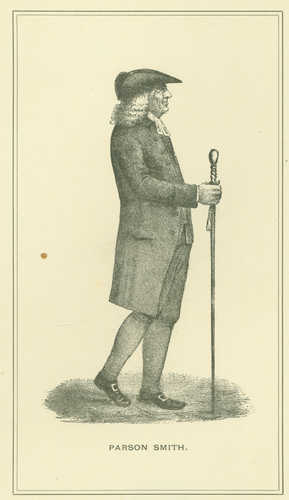Keywords: French and Indian Wars
Item 25680
Indian attacks, Brunswick area, 1756
Contributed by: Maine Historical Society
Date: 1756
Location: Brunswick; Topsham
Media: Ink on paper
This record contains 2 images.
Item 5765
Troop instructions from Governor Shute about Wabanaki, 1721
Contributed by: Maine Historical Society Date: 1721-08-09 Media: Paper
Exhibit
Father Rasles, the Indians and the English
Father Sebastien Rasle, a French Jesuit, ran a mission for Indians at Norridgewock and, many English settlers believed, encouraged Indian resistance to English settlement. He was killed in a raid on the mission in 1724 that resulted in the remaining Indians fleeing for Canada.
Exhibit
When Europeans arrived in North America and disrupted traditional Native American patterns of life, they also offered other opportunities: trade goods for furs. The fur trade had mixed results for the Wabanaki.
Site Page
"… in Biddeford during the 1860s, thousands of French Canadian, Irish, and some west European immigrants migrated to Biddeford and Saco to work in…"
Site Page
Biddeford History & Heritage Project - The Civil War & Biddeford
"The Civil War & Biddeford X Confederate money, 1862Biddeford Historical Society "It is with feelings of patriotic pride that I refer to…"
Story
Reverend Thomas Smith of First Parish Portland
by Kristina Minister, Ph.D.
Pastor, Physician, Real Estate Speculator, and Agent for Wabanaki Genocide
Story
A Note from a Maine-American
by William Dow Turner
With 7 generations before statehood, and 5 generations since, Maine DNA carries on.
Lesson Plan
Maine's Acadian Community: "Evangeline," Le Grand Dérangement, and Cultural Survival
Grade Level: 9-12
Content Area: English Language Arts, Social Studies
This lesson plan will introduce students to the history of the forced expulsion of thousands of people from Acadia, the Romantic look back at the tragedy in Henry Wadsworth Longfellow's famous epic poem Evangeline and the heroine's adoption as an Acadian cultural figure, and Maine's Acadian community today, along with their relations with Acadian New Brunswick and Nova Scotia residents and others in the Acadian Diaspora. Students will read and discuss primary documents, compare and contrast Le Grand Dérangement to other forced expulsions in Maine history and discuss the significance of cultural survival amidst hardships brought on by treaties, wars, and legislation.













